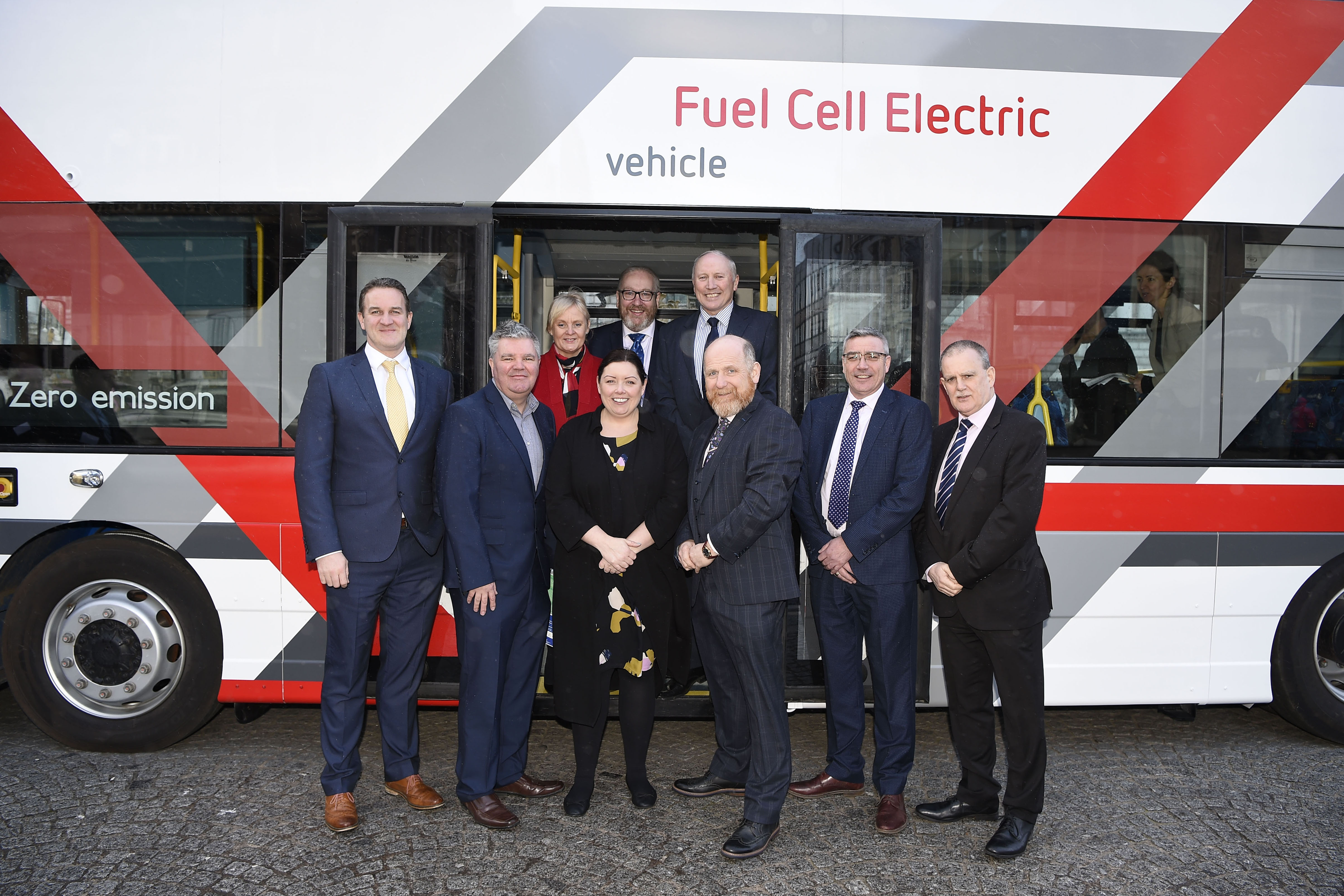Carbon reduction and renewable hydrogen were top of the agenda at Belfast’s City Hall on 12 March, with the launch of ‘Hydrogen Ireland’, Ireland’s new national hydrogen association. Launched as part of GenComm’s Open Meeting, the new association is a welcome development for all those involved in developing the renewable hydrogen sector. Hosted by GenComm partner Energia, energy stakeholders from across Europe gathered for the launch, and to hear the latest developments on the GenComm project.
The Lord Mayor of Belfast, Councillor Deirdre Hargey, was present to welcome attendees to the City Hall, and showed her support for the GenComm project and its long-term aim to provide a clean sustainable energy solution for Northern Ireland communities:
“The work being carried out by GenComm into discovering more sustainable and environmentally friendly forms of energy is fantastic. We need to be more aware of the impact we’re having on our environment and work collectively to improve the world we live in for future generations.”
Ruut Louwers, Programme Director at Interreg North West Europe, commented:
“It gives me great pleasure to be present at the launch of Hydrogen Ireland here in Belfast! This is one of the main outcomes of GENCOMM, which is demonstrating an innovative combination of successful solutions that can achieve higher impacts on the communities of North-West Europe. INTERREG NWE decided to finance this initiative as it demonstrates a smart way to tackle storage, which represents one of the main challenges hindering the development of renewables and the reduction of GHG emissions in the EU. With five countries involved in the partnership, the project is also a solid example of the added-value of transnational cooperation and cohesion between Member States.”
The GenComm meeting also coincided with the recent publication of an EU Survey on the EU’s 28 progress towards their 2020 renewable energy targets. With Sweden coming out top with more than half (54.5%) of its energy coming from renewable sources and exceeding its target, the UK remains short of its national target, with 10.2% of its energy coming from renewable sources. Northern Ireland expects to reach its ambitious 40% renewable ‘electricity’ target one year ahead of schedule, however it increased its overall greenhouse emissions in 2016, and its transport emissions are 29% higher than in 1990. Projects like GenComm are therefore vitally important in the drive to meet climate change targets, and to seeing much needed improvements to transport emissions.

